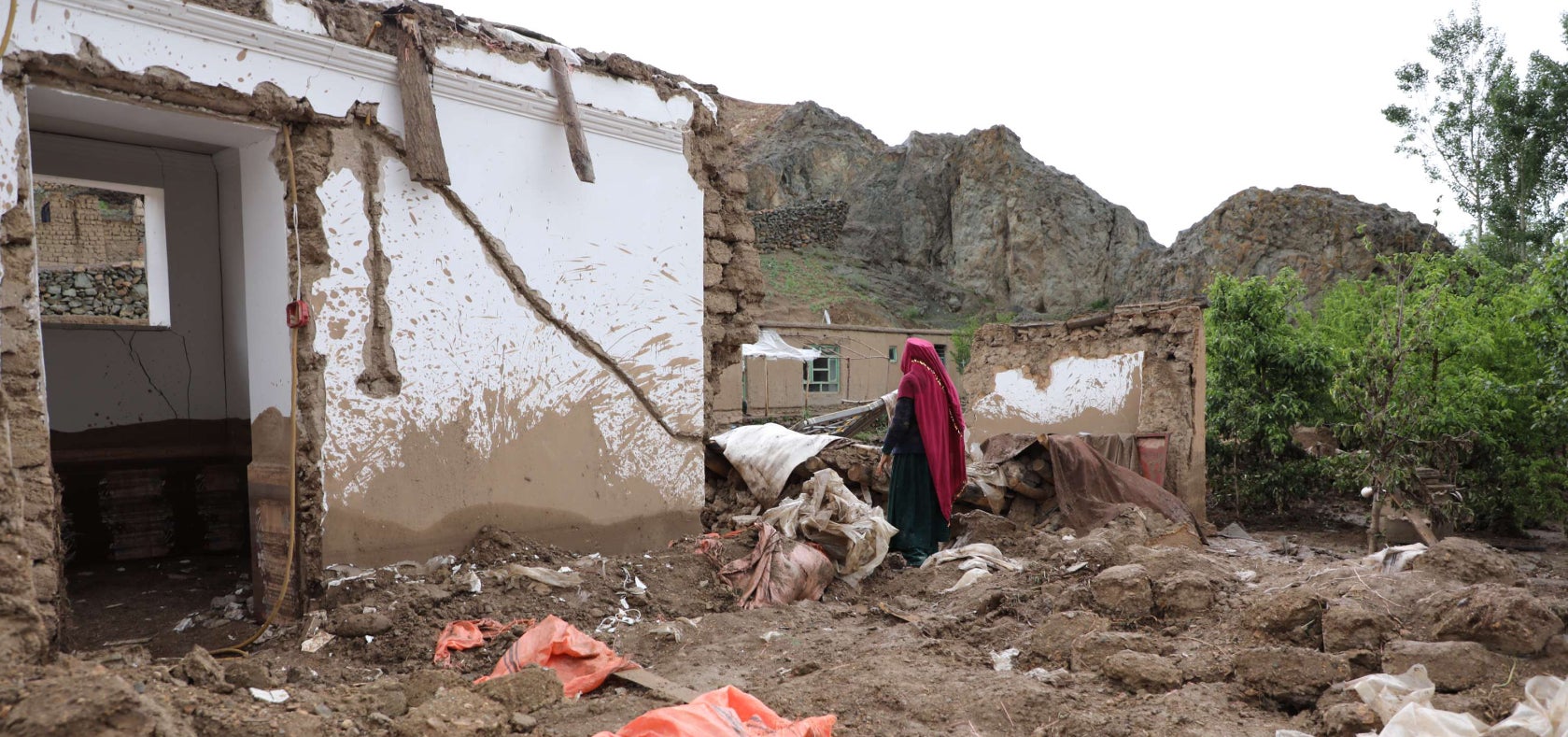In the words of Hamida*: “The horror of the flood killed the child in his mother’s womb”
Date:

Hamida*, 50, from the Chaharsedeh District, Ghor Province, lost her home to the heavy rains and flash flooding in Western Afghanistan on 17–18 May. According to a new Gender Alert by the Gender in Humanitarian Action Working Group co-chaired by UN Women Afghanistan, women and children have been disproportionately affected by the flooding as they were more likely to be inside their homes while men sought shelter in safer public buildings, such as mosques.

It was around 7.30 p.m. on 17 May, when unexpected floods engulfed our region. I was at home with my daughter-in-law and 11 children and grandchildren of different ages, sitting at the table to have dinner.
I had just put a pot of potatoes on the table when, suddenly, we heard a terrible sound and the house started shaking. Mud submerged the table and the house went dark. My daughter-in-law and grandchildren all started crying.
I rushed to the entrance to see what happened. When I opened the door, I could see that half of the yard wall had been destroyed by flooding. I could hear the voices of neighbours yelling ‘Run away! The flooding has swept away the entire village!’
I ran to the gate, where I could see neighbouring houses and the walls of my own house collapsing. When I looked back and saw my 8-month-pregnant daughter-in-law and grandchildren drowning in the water and calling for help, I ran back towards them. But one of our neighbours stopped me.
The neighbours made a hole in the wall surrounding our yard with a shovel and a pick to save my daughter-in-law and grandchildren. They were hugging my grandchildren and pulling them out, one-by-one. My daughter-in-law emerged, pale-faced, with her hand on her belly and her whole body covered in mud.
She was shivering from the cold and saying: ‘the house has been washed away. There is nothing left. I don’t even have clothes for my unborn child. My back hurts a lot, and I am concerned that something bad might happen to my unborn child.’
Then, screams and cries erupted and we could hear the strange and terrible sound of a [bigger flood wave] destroying more homes. Soon, it reached and completely destroyed our entire house.
My daughter-in-law screamed loudly and passed out. I asked one of our neighbours, who had a car, to take her to the hospital. But with the flooding, there was no possible way to go by car, so we took her by motorcycle. It took a long time, because the floods had blocked and destroyed many roads. My daughter-in-law was bleeding a lot by then. I feared for her life and that of the child.
At the hospital, the doctor said she needed surgery because her fetus had died, and if they did not remove it, she would die as well. The horror of the flood had killed the child in his mother’s womb. I asked the doctors to do whatever was necessary to save my daughter-in-law’s life.
After two hours, the doctors finally came to tell me her life was out of danger. When she woke up 30 minutes later, she put her hand on her belly and asked, ‘Where is my baby? What has happened?’ She started screaming and we were both crying.
The doctors discharged us from the hospital the next evening. When I went to look at our house, I saw that everything had been washed away by the flood. There was nothing left. I regretted that I could not at least have taken glasses for my children to drink tea and water.
We left Chaharsadeh District empty-handed to go to Firozkoh City to save ourselves from the floods. We don’t know where to go and what to do. We have no money, no clothes to wear, no food to eat, and no place to stay. If we don’t get help, my children and grandchildren will all perish".
* Names and details changed to protect the identity of the protagonists.